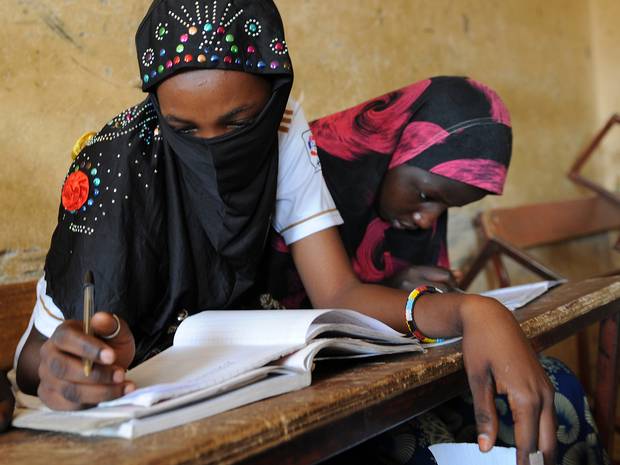埃及禁止小学生戴头巾上学
编辑:高中作文网 阅读 次埃及禁止小学生戴头巾上学
Egypt bans girls from wearing hijabs to school - until they reach puberty
Egypt has banned children from wearing hijabs to school.
埃及禁止儿童戴头巾入校。
Education Minister Moheb Al-Refaei has said that girls will no longer be allowed to wear the hijab to school.
教育部部长Moheb Al-Refaei表示,今后,女孩不允许戴头巾入校。

Speaking in an interview, the Minister said that Islam did not require girls to wear the hijab until they reach puberty and so there was no need for them to wear the veil in primary school.
教育部部长在一次采访中表示,根据伊斯兰教的要求,女孩只有到了青春期才必须戴头巾,因此小学生就没必要带头巾。
The wearing of religious veils in the country is a deeply divisive issue. Whilst many clerics believe it to be obligatory in Islam, some academics dispute this and argue that its roots lie in cultural tradition rather than having a theological basis.
在埃及,人们对于戴蕴含宗教意义的头巾一直存在很大分歧。很多牧师认为,在伊斯兰世界,这是强制性的。而一些学者则持反对意见,他们认为戴头巾起源于文化传统,而非神学基础。
In 1994, the Egyptian government revised school uniform legislation to forbid girls under the age of 12 from covering their hair. However, the law provoked fierce debate and accusations that the move was un-Islamic. The Supreme Court ruled the ban unconstitutional in 1996.
1994年,埃及政府修改了校服立法,禁止12岁以下的女孩儿遮盖头发。然而,该法律引起了激烈争论,有人指责该法反对伊斯兰。1996年,最高法院裁定该禁令违宪。
In March of this year, the issue gained national attention again when a teacher beat a girl and cut off a lock of her hair because she did not wear a hijab to class.
今年三月,埃及一名女孩儿未戴头巾上课而被老师殴打,这名老师还剪掉了女孩一缕头发。此事使得这一问题再次引发国民关注。
vocabulary
hijab: 头巾
puberty: 青春期
theological:神学的
unconstitutional:违宪的
a lock of: 一缕(头发)




